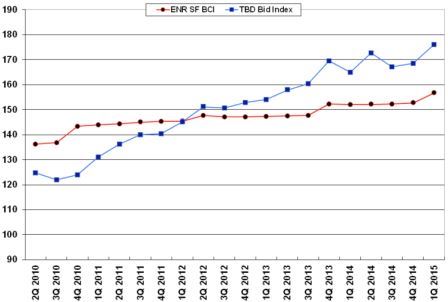

In this Edition
Construction
Management Specialists
111 Pine Street, Suite 1315
San Francisco, CA 94111
(415) 981-9430 (San Francisco office)
1663 Eureka Road
Roseville, CA 95661
(916) 742-1770 (Sacramento office)
9449 Balboa Avenue, Suite 270
San Diego, CA 92123
(619) 518-5648 (San Diego office)
8538 173rd Avenue NE
Redmond, WA 98052
(206) 571-0128 (Seattle office)
2063 Grant Road
Los Altos, CA 94024
(650) 386-1728 (South Bay office)
9705 Cymbal Drive
Vienna, VA 22182
(703) 268-0852 (Washington, DC office)
www.TBDconsultants.com
With California's central valley farmland sinking at alarming rates as water is being pumped from aquifers, and NASA forcasting mega-droughts of maybe 30 years or more, the need for water recycling is becoming critical. In this article we look at Net Zero Water initiatives.
It was back in 2010 that we first wrote about the effects Greece was having on the world economy, and now it is back in the headlines again. At the time this article is being written (latter half of February), Greece is trying to renegotiate the terms of its bailout, but the rest of Europe has various reasons for not wanting to give them much slack, and pessimism abounds about the outcome. The idea of Greece leaving the Euro remains a possibility, but while Alan Greenspan made some valid points about the long-term viability of the Euro without closer political union in Europe, the Euro seems safe enough at present. And European politicians proved to be just as good as ours at coming up with a compromise that everyone could claim victory from, while kicking the can down the road a bit, so Greece shouldnít be too much of an issue until our third-quarter newsletter is due out.
Other serious international problems, such as ISIS and Ukraine, remain, but donít have much influence on our domestic market, except for occasionally worrying stock market investors when the headlines get too large. Even the probability of Greece leaving the Euro is no longer such a worrying issue, as those holding the debt are in a stronger financial position than they were.

While the European economy is still in a bit of a mess, the Eurozone did grow stronger than expected in the fourth quarter of 2014, thanks to strong domestic demand in Germany. Spain also grew, while France and Italy still have problems but performed better than expected. Elsewhere in the world we see growth in China is slowing, and Russia is mired in sanctions and suffering lack of income due to oilís price drop. Japan moved out of recession at the end of 2014, and also has rising employment but little wage increase while corporate coffers have been bulging (which might sound like a familiar situation that occurred closer to home).
Here in the US, the economy continues to improve. While low oil prices are a serious concern for some, it has been suggested that the low energy costs could result in more manufacturing jobs returning to the US. With consumers spending less on gas, it is also hoped that they will end up spending more elsewhere. That could boost the job situation even more, and the latest indications even show that wage growth has been picking up.
The soaring US dollar has been creating problems for exporters, but if Europe continues to improve, that should ease the situation. While other central banks are reducing interest rates and buying bonds to encourage growth and fight the risk of deflation, the Fed is doing the opposite.
January saw severe weather across much of the nation, an icy blast blowing through the stock market, and also showed the Architectural Billings Index recording a drop. But the indications are that all three will continue to improve as the year progresses.
Geoff Canham, Editor
Windows 8 did not exactly excite the business community, but Microsoft is hoping that its new offering will restore the image of Windows as the innovative operating system of choice. Here we look at what the Redmond company's latest version is likely to bring us.
Design consultant: Katie Levine of Vallance, Inc.